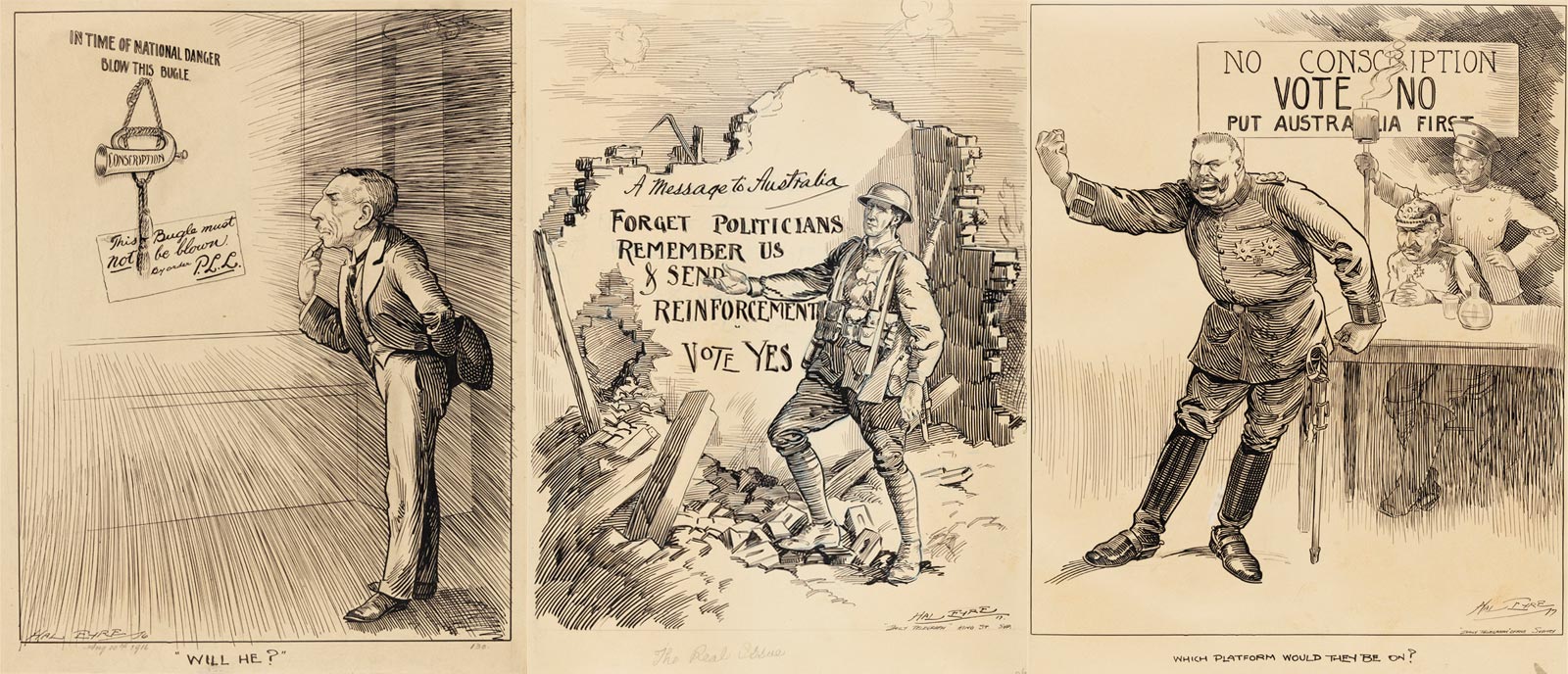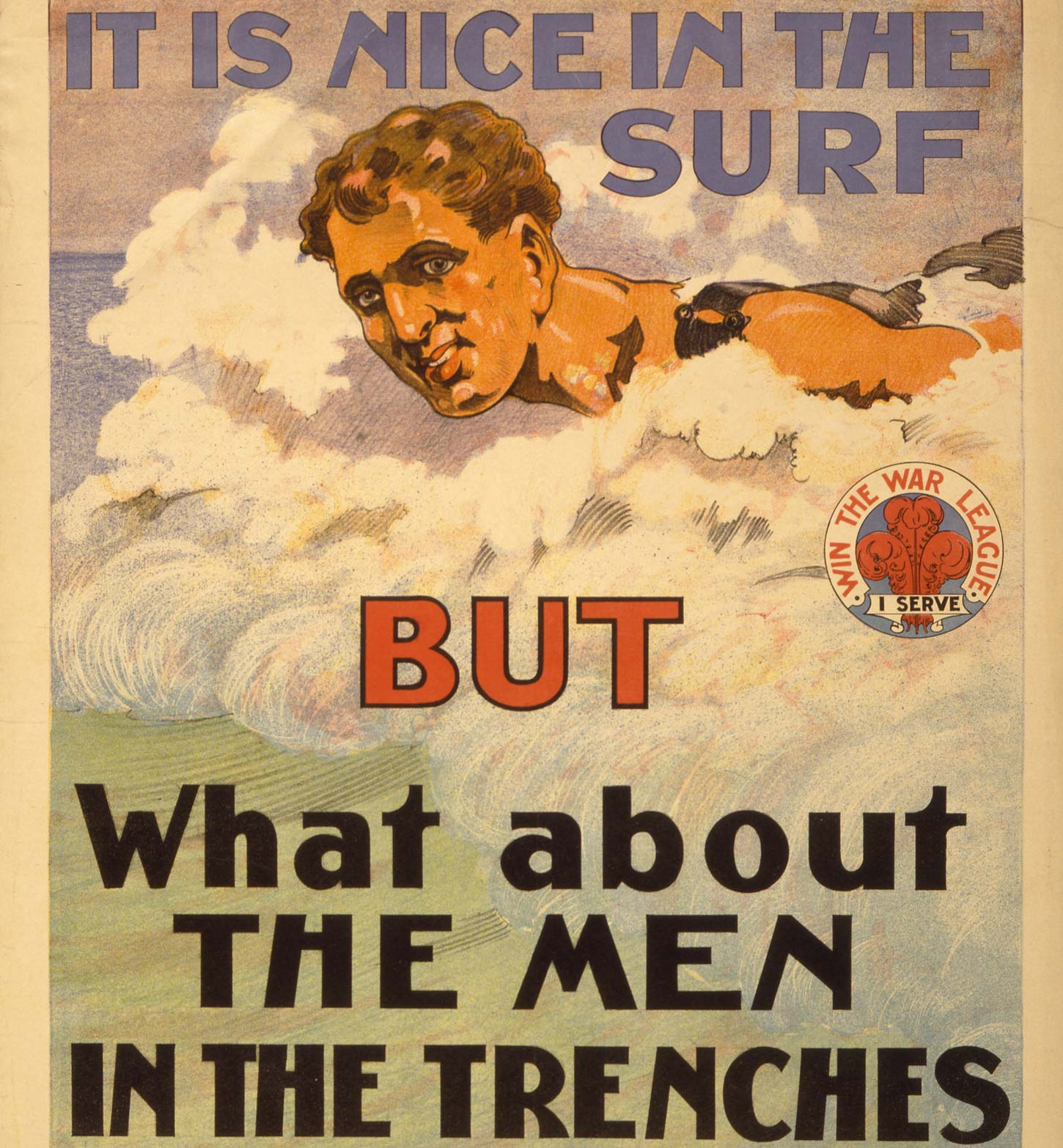Australia again says no to conscription
Canberra, 31 December 1917 - Australia has voted by a clear majority to reject proposals that would have introduced compulsory military service.
This was the second referendum in two years on the issue, and while not all returns have been calculated, the current vote stands at 1,120,000 against conscription and 945,000 for it.
In October last year, when a similar question was put to the to the Australian people, only 61,000 ballots separated the two sides.

Three pro-conscription cartoons from the Australian Daily Telegraph. The centre one is particularly interesting as it depicts a soldier at the front calling for a 'Yes' vote, when in fact Australian soldiers voted 'No'. The one on the left shows Australian PM Billy Hughes deliberating whether or not to blow the 'Conscription' bugles. To the right we see the Kaiser campaigning for a 'No' vote. All cartoons drawn by Hal Eyre. (Images: State Library New South Wales)
This conscription campaign, like that of last year, was a bitter one. It was born of Australia’s difficulties in meeting troop supply commitments that had been made to the British government.
One notable feature of the result was that serving Australian soldiers voted against conscription. Also influential was the Irish community, none more so than the Cork-born Archbishop of Melbourne, Dr Daniel Mannix, who carried on a strong campaign against the measure.
Labour, who also opposed conscription, pointed out that the result was not a vote for Germany. Rather the party hailed it as a ‘victory for voluntaryism and liberty, while affirming its continued belief in the justice of the war and the necessity of defeating the Central Powers’.
![]()
An Australian Labour anti-conscription ad (Image: Australian War Memorial)
The repercussions of this referendum, for both the Australian government and the wider war effort, will long be felt. Already a more immediate backlash is being reported, with some New Zealand companies refusing to employ Australian shearers on the basis that jobs previously occupied by New Zealanders now off fighting should not be filled by people who voted against conscription.
That this result has gone the same way as the previous referendum
is a serious blow to Billy Hughes, the Prime Minister of the
Australian Commonwealth. There has been some speculation that his
Federal Government might resign when the parliament reassembles in
early January.
[Editor's note: This is an article from Century Ireland,
a fortnightly online newspaper, written from the perspective
of a journalist 100 years ago, based on news reports of the
time.]





















